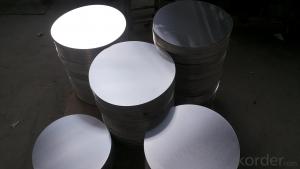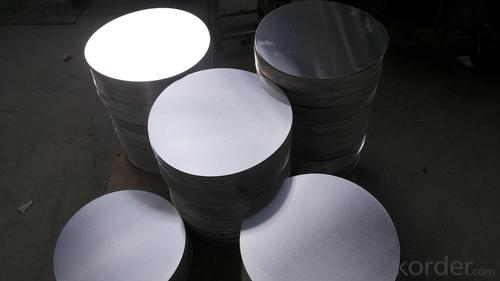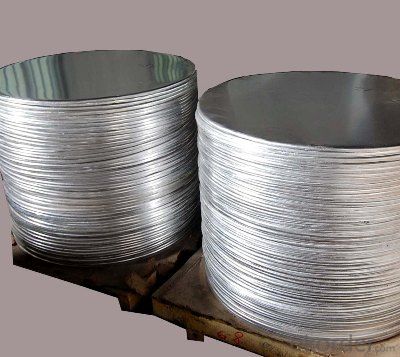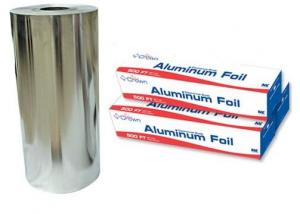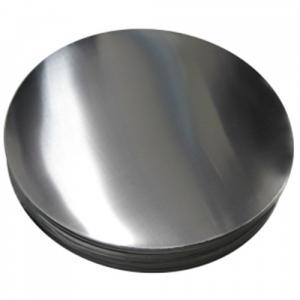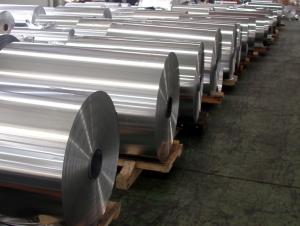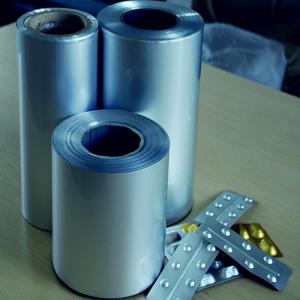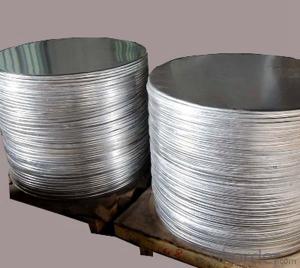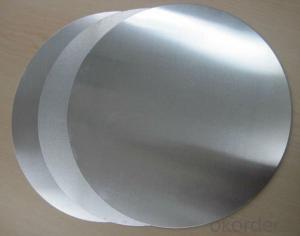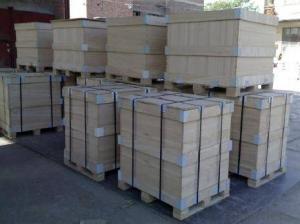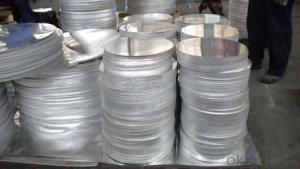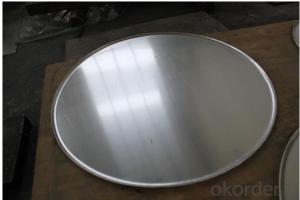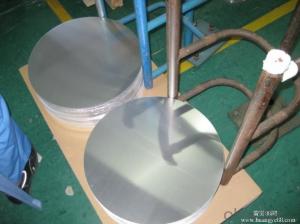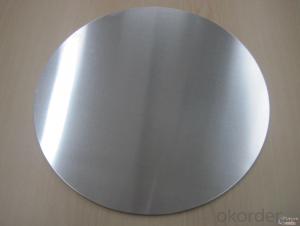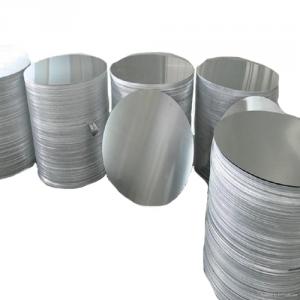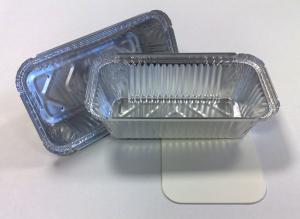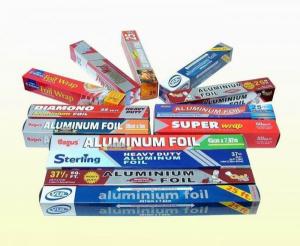Aluminum AA3003 Mill Finished Circles - CC Quality Cookware Grade
- Loading Port:
- Shanghai
- Payment Terms:
- TT OR LC
- Min Order Qty:
- 3 m.t.
- Supply Capability:
- 1000 m.t./month
OKorder Service Pledge
OKorder Financial Service
You Might Also Like
Specification
1.Structure of CC Quality AA3003 Mill Finished Aluminum Circles Used for Cookware Description
CC Quality AA3003 Mill Finished Aluminum Circles Used for Cookware is made from aluminum coils 1xxx. CC Quality AA3003 Mill Finished Aluminum Circles Used for Cookware has great ductility, heat conductivity, anti-corrosion and moisture resistance properties.
CC Quality AA3003 Mill Finished Aluminum Circles Used for Cookware are widely used for kitchen wares including fried pans, non-sticky pans, cooking pots,hard anodized cookware, pressure cooker and house hold utensils.
2.Main Features ofCC Quality AA3003 Mill Finished Aluminum Circles Used for Cookware
• Superior quality of raw material
• Reasonable and stable chemical composition
• Accurate tolerance
• Goode mechanical property
3.CC Quality AA3003 Mill Finished Aluminum Circles Used for Cookware Images
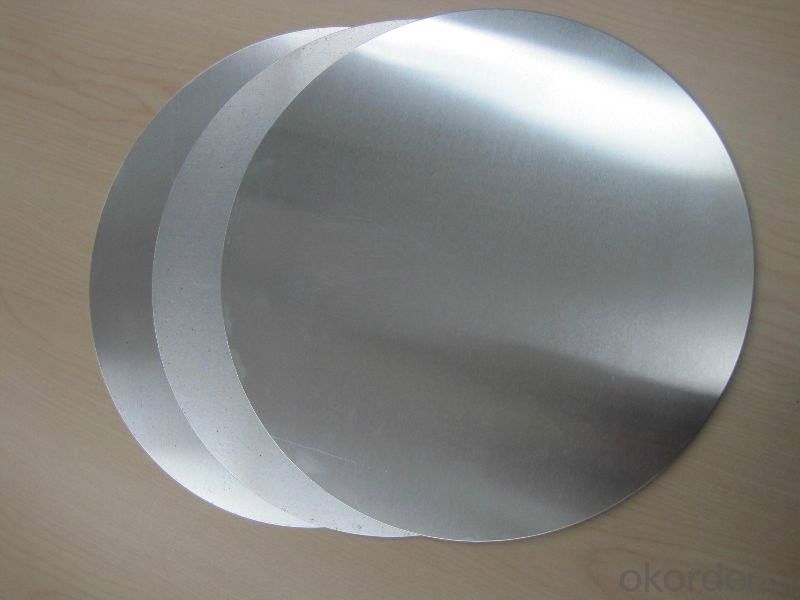
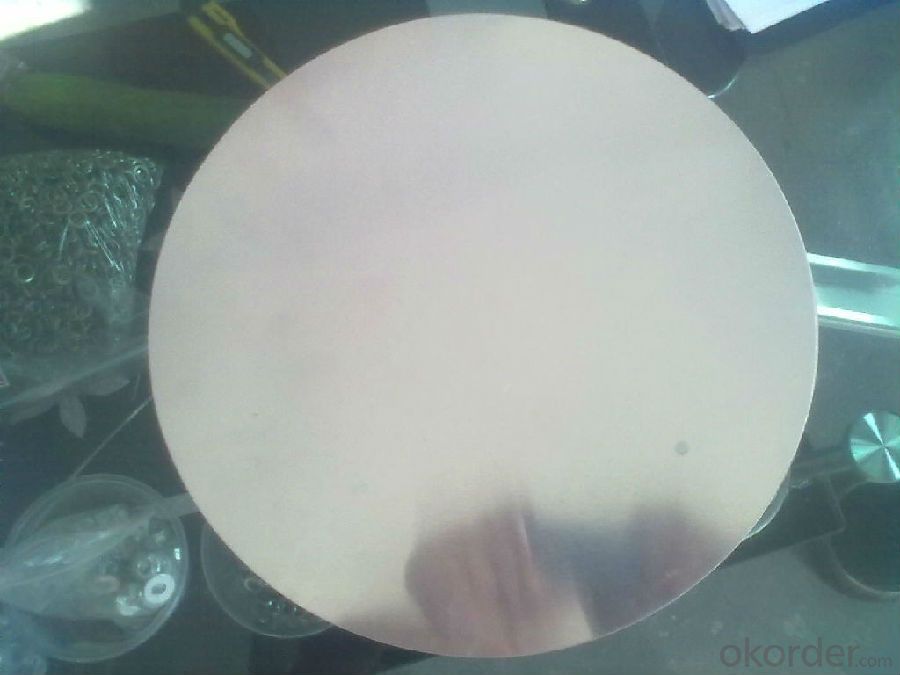
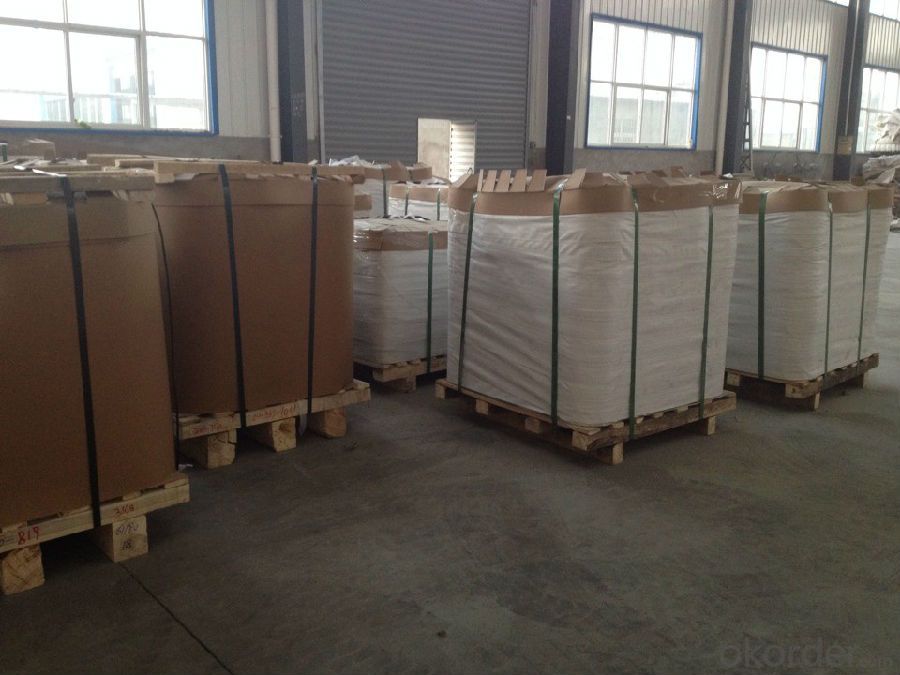
4.CC Quality AA3003 Mill Finished Aluminum Circles Used for Cookware Specification
Alloy | AA3003 |
Temper | H14, H16, H18, H22, H24, H26, H32, O/F |
Thickness | 0.5mm -- 4mm |
Diameter | 200mm -- 1200mm |
Standard | GB/T 3880-2006 |
5. FAQ of CC Quality AA3003 Mill Finished Aluminum Circles Used for Cookware
A.How to guarantee the quality?
Customers are welcome to our mill to visit and check the products. Besides, we can arrange a third party to test CC Quality AA3003 Mill Finished Aluminum Circles Used for Cookware.
B.When will you deliver the products?
CC Quality AA3003 Mill Finished Aluminum Circles Used for Cookware will be delivered within 35 days after receiving advanced payment or original L/C.
- Q: Is it safe and common to use aluminum for the production of containers for food and beverages?
- <p>Yes, aluminum is commonly used to make containers for food and beverages. It is lightweight, durable, and provides excellent resistance to corrosion. Aluminum cans are widely used for beverages like soda and beer, and aluminum foil is often used for food packaging. However, it's important to note that the interior of aluminum cans is usually lined with a protective coating to prevent direct contact with the food or drink, which can help to mitigate any potential health concerns related to aluminum exposure.</p>
- Q: Is it possible to utilize aluminum in the construction of automobiles?
- <p>Yes, aluminum is widely used in automobiles due to its lightweight, high strength, and excellent corrosion resistance. It is commonly found in engine components, body panels, and wheels. The use of aluminum can lead to reduced vehicle weight, which improves fuel efficiency and reduces emissions. Additionally, aluminum's recyclability makes it an environmentally friendly choice for automotive manufacturing.</p>
- Q: Is it possible to recycle old aluminum products and use them to create new aluminum products?
- <p>Yes, old aluminum products can be recycled and reused to make new ones. Recycling aluminum is a highly efficient process that conserves resources and energy. The recycling process involves melting down the old aluminum, which requires significantly less energy compared to extracting aluminum from raw materials. This makes aluminum one of the most recycled materials in the world, with a closed-loop recycling system that allows for continuous reuse without significant loss in quality.</p>
- Q: Can reusing old aluminum foil be utilized for cleaning tasks in kitchen or bathroom areas?
- <p>Yes, old aluminum foil can be used for cleaning purposes in a kitchen or bathroom. It's particularly effective for scrubbing pots and pans, removing burnt-on food, and cleaning glass and tiles. The shiny side of the foil can be used to remove scuff marks from floors and the dull side can be used to scrub away stubborn stains. However, it's important to avoid using foil that has been in contact with acidic or corrosive substances, as it may have become damaged or weakened, and could potentially scratch surfaces. Always test on a small, inconspicuous area first to ensure it doesn't damage the surface you're cleaning.</p>
- Q: Is it possible to utilize aluminum in the construction of automobiles?
- <p>Yes, aluminum is widely used in automobiles due to its lightweight and high strength properties. It is commonly found in engine components, body panels, and wheels. Aluminum helps reduce the overall weight of the vehicle, which can improve fuel efficiency and reduce emissions. Additionally, it is resistant to corrosion and can be easily recycled, making it an environmentally friendly choice.</p>
- Q: This question asks about the impact of adding magnesium to aluminum alloys and how it changes their characteristics.
- <p>The addition of magnesium to aluminum alloys significantly improves their mechanical properties, particularly strength and rigidity. Magnesium enhances the alloy's resistance to corrosion and increases its formability. It also contributes to better weldability and reduces the likelihood of hot cracking during the welding process. However, the addition of magnesium can also lead to a decrease in electrical conductivity and may increase the alloy's susceptibility to stress corrosion cracking. The overall effect of magnesium on aluminum alloys is to create a material that is lighter, stronger, and more resistant to environmental degradation, making it suitable for various applications in the aerospace, automotive, and construction industries.</p>
- Q: Besides other special pots, can other aluminum pots be used?
- Electromagnetic stove pot must be metal pot with magnetic and non-magnetic stainless steel, aluminum pot can not be used.
- Q: This question asks for a brief overview of the characteristics or qualities of aluminum nitride, a chemical compound.
- <p>Aluminum nitride (AlN) is a covalent, ceramic material known for its exceptional properties. It has a high thermal conductivity, which is about two-thirds that of copper, making it useful in electronics for heat dissipation. It's also an electrical insulator, exhibiting high electrical resistivity. Aluminum nitride is characterized by its high thermal stability, resistance to thermal shock, and excellent mechanical strength. It's chemically inert, resistant to most acids and alkalis, and has a high melting point of approximately 2200掳C. These properties make it suitable for applications in high-temperature electronics, as a substrate for semiconductor devices, and in the automotive industry for heat sinks and other heat management components.</p>
- Q: This question asks for an overview of the environmental concerns associated with the manufacturing process of aluminum.
- <p>The production of aluminum is associated with several environmental issues. One major concern is the high energy consumption required for the smelting process, which contributes to greenhouse gas emissions. The process also generates significant amounts of waste, including red mud, a hazardous byproduct that can contaminate soil and water if not properly managed. Additionally, deforestation and habitat destruction occur due to the mining of bauxite, the primary ore of aluminum. Air pollution is another issue, as the production process releases particulates and other pollutants into the atmosphere. Lastly, the depletion of non-renewable resources, such as fossil fuels used in the smelting process, is a long-term environmental concern related to aluminum production.</p>
- Q: This question asks for a comparison of the benefits and drawbacks of using aluminum as a material in construction projects.
- <p>Aluminum in construction offers several advantages, including its lightweight nature, which reduces structural load and facilitates easier transportation and installation. It is also highly resistant to corrosion, making it ideal for outdoor applications and in areas with harsh weather conditions. Aluminum's recyclability contributes to sustainability, and it has a high strength-to-weight ratio, enhancing structural integrity. However, it has some disadvantages, such as being a poor conductor of heat, which may require additional insulation. It can also be more expensive than traditional materials like steel or concrete, and it dents easily, necessitating careful handling and maintenance.</p>
Send your message to us
Aluminum AA3003 Mill Finished Circles - CC Quality Cookware Grade
- Loading Port:
- Shanghai
- Payment Terms:
- TT OR LC
- Min Order Qty:
- 3 m.t.
- Supply Capability:
- 1000 m.t./month
OKorder Service Pledge
OKorder Financial Service
Similar products
Hot products
Hot Searches
